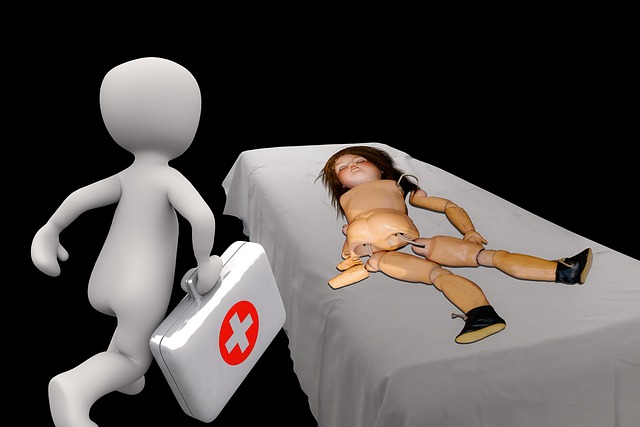CBT therapy is a structured psychological treatment approach that targets negative thought patterns and behaviors, offering clear goals, evidence-based techniques, and personalized strategies. Its structured nature enhances client engagement, enables effective progress measurement, and improves outcomes, particularly in treating depression, anxiety, and PTSD. Integrating CBT with technological advancements like telehealth, mobile apps, and AI algorithms expands accessibility and supports individualized care. Research demonstrates CBT's long-term benefits in mental well-being management.
“Unleashing the Power of Structured Psychological Treatment: A Comprehensive Guide
In today’s complex healthcare landscape, structured psychological treatment approaches are revolutionizing clinical practice. This article delves into the core concepts, exploring ‘Understanding Structured Psychological Treatment’ as a robust framework for effective therapy. We dissect the role of CBT therapy in these structured methods and highlight key components for successful patient outcomes.
From benefits and challenges to real-world case studies, we navigate the art of individualizing care within structured protocols, integrating evidence-based techniques, and charting future innovations.”
Understanding Structured Psychological Treatment: A Framework for Effective Therapy

Structured psychological treatment, often centered around Cognitive Behavioral Therapy (CBT), provides a systematic approach to addressing mental health concerns. Unlike unstructured conversations, CBT therapy follows a structured framework where therapists guide patients through specific techniques and strategies tailored to their needs. This methodically planned process ensures that each session builds upon the last, fostering consistent progress towards therapeutic goals.
The beauty of this structured approach lies in its ability to offer clear direction, measurable outcomes, and a sense of accountability. Patients are equipped with practical tools and insights they can apply between sessions, promoting active participation in their healing journey. This framework not only enhances the effectiveness of therapy but also empowers individuals to take control of their mental well-being.
The Role of CBT Therapy in Structured Treatment Approaches

Cognitive Behavioral Therapy (CBT) is a cornerstone in structured psychological treatment approaches, offering a well-researched and effective framework for addressing a wide range of mental health concerns. This therapeutic method focuses on identifying and changing negative thought patterns and behaviors that contribute to emotional distress and impede overall functioning. By breaking down complex issues into manageable components, CBT enables individuals to gain insights into their thoughts, feelings, and actions, fostering a more balanced and adaptive mindset.
In structured treatment settings, CBT is particularly valuable for its structured nature, clear goals, and evidence-based techniques. Therapists guide clients through specific steps, often utilizing homework assignments and practical exercises, to challenge unhelpful beliefs and replace them with healthier alternatives. This structured approach ensures consistency and progress in the therapeutic journey, making CBT a powerful tool in helping individuals develop coping strategies, improve emotional regulation, and enhance their overall well-being.
Key Components of a Structured Psychological Treatment Plan

In structured psychological treatment plans, Cognitive Behavioral Therapy (CBT) serves as a cornerstone, focusing on identifying and changing negative thought patterns and behaviors. This involves setting clear and achievable goals with the patient, followed by a systematic breakdown of these goals into manageable tasks. Therapists employ evidence-based techniques to teach patients new skills, such as coping strategies and problem-solving abilities, which are then practiced in therapeutic sessions.
Regular monitoring and evaluation are crucial components. Therapists assess progress through structured assessments, adjusting the treatment plan accordingly. This ensures that the CBT approach remains tailored to the patient’s evolving needs, fostering a more effective and efficient path towards mental well-being.
Benefits and Challenges of Implementing Structured Treatment in Clinical Practice

Implementing structured treatment, such as Cognitive Behavioral Therapy (CBT), in clinical practice offers numerous benefits. CBT is a well-researched and effective approach that provides patients with clear goals, structured sessions, and practical coping strategies. This method enhances client engagement and enables healthcare professionals to measure progress effectively. Structured treatments also streamline care, allowing for efficient allocation of resources and improved access to quality mental health services.
However, challenges exist when integrating CBT into clinical workflows. These include the need for specialized training among healthcare providers, potential resistance from patients who prefer more flexible treatment options, and the time required to deliver structured sessions consistently. Balancing these challenges while leveraging the benefits of structured treatment is crucial for optimizing patient outcomes in a dynamic healthcare landscape.
Individualizing Care: Tailoring Structured Therapy to Meet Unique Patient Needs

In structured psychological treatment, individualizing care is paramount. Every patient’s experience and response to therapy are unique, necessitating a tailored approach that goes beyond standardized protocols. CBT therapy, for instance, is not one-size-fits-all; it must be adapted to address specific symptoms, personal beliefs, and life circumstances. Therapists achieve this by conducting thorough initial assessments, which involve understanding the patient’s history, goals, and any co-occurring conditions.
This personalized approach ensures that therapy sessions are focused on addressing the most pressing issues, leading to more effective outcomes. By integrating individual needs into the treatment plan, therapists can employ specific techniques, such as cognitive restructuring for anxiety or behavioral activation for depression, making CBT therapy both flexible and powerful in meeting diverse patient requirements.
Case Studies: Real-World Examples of Successful Structured Psychological Interventions

Case studies offer powerful examples of how structured psychological interventions, such as Cognitive Behavioral Therapy (CBT), can successfully address a range of mental health challenges. These real-world scenarios illustrate the effectiveness and versatility of CBT in treating conditions like depression, anxiety disorders, and post-traumatic stress disorder (PTSD). For instance, research has shown that CBT can significantly reduce symptoms of depression through structured sessions focusing on identifying negative thought patterns and replacing them with healthier, more balanced perspectives.
Additionally, case studies highlight the long-term benefits of CBT. Many individuals who complete structured therapy programs report sustained improvements in their mental well-being, even years later. This longevity is particularly notable when compared to the transient effects often associated with medication alone. By providing clients with practical coping strategies and enhanced problem-solving skills, CBT empowers them to manage future challenges independently, fostering resilience and overall psychological wellness.
Integrating Evidence-Based Techniques within Structured Treatment Protocols

In structured psychological treatment, integrating evidence-based techniques is a key strategy for enhancing therapeutic outcomes. Cognitive Behavioral Therapy (CBT), for instance, has proven effectiveness in addressing various mental health conditions. By incorporating CBT principles into treatment protocols, therapists can provide clients with clear, goal-oriented interventions that focus on identifying and modifying negative thought patterns and behaviors. This structured approach ensures consistency and predictability, allowing individuals to actively participate in their healing journey.
Through combining evidence-based practices with structured protocols, therapists create a robust framework for individualized care. Such integration enables the tailoring of treatment plans to meet specific client needs, ensuring that interventions are not only effective but also aligned with the latest research findings. This holistic method promotes positive outcomes while maintaining flexibility in addressing the unique complexities of each individual’s psychological well-being.
Future Directions and Innovations in Structured Psychological Treatment

The future of structured psychological treatment holds immense potential for innovation, particularly with the ongoing evolution of therapeutic techniques like Cognitive Behavioral Therapy (CBT). Researchers are exploring new ways to enhance accessibility and effectiveness through technology integration. Telehealth platforms, for instance, offer remote delivery options, enabling individuals in remote areas or with limited mobility to access evidence-based treatments. Additionally, digital tools such as mobile apps and virtual reality (VR) are being integrated into CBT protocols, providing interactive and immersive experiences that can improve patient engagement and outcomes.
Artificial intelligence (AI) also plays a promising role, with algorithms capable of analyzing large datasets to identify patterns and predict treatment responses. This precision medicine approach could tailor interventions to individual needs more effectively. Moreover, AI-driven chatbots and virtual therapists are under development to offer 24/7 support and initial assessments, augmenting traditional care models. These innovations aim to increase accessibility, reduce wait times, and promote early intervention for mental health concerns.
